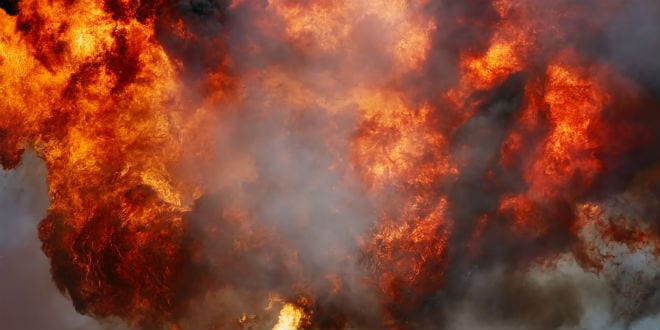A member of the Iranian Parliament’s National Security Committee said on Wednesday that the mysterious explosion at the country’s Natanz nuclear facility on July 2 was caused by a “security breach,” but did not elaborate further.
The lawmaker, Javad Karimi Qoddousi, said the blast had not been caused by “a strike on the complex by an external object,” such as a bomb or a missile, according to Radio Farda, Such an attack he said, would have left shrapnel, “but absolutely no such debris were found at the site.”
Qoddousi’s statement coincides with a July 5 New York Times report, in which an unnamed Middle Eastern intelligence official said the damage to the uranium enrichment facility was far more extensive than the Iranians had originally claimed, and had been caused by a powerful explosive device planted inside the facility. The official said it would take Iran at least two years to completely rehabilitate its nuclear program.
On July 13, Iranian Foreign Ministry spokesman Seyed Abbas Mousavi warned that any country deemed responsible for the incident should expect a “decisive” Iranian reaction.
The explosion at Natanz came six days after a massive explosion near the Parchin military complex southeast of Tehran, which shook windows in the Iranian capital.
Authorities blamed that blast on “leaking gas tanks.”
The Parchin military site has been used by Iran’s Islamic Revolutionary Guard Corps to test ballistic missiles. Western analysts believe the site consists of a vast underground tunnel complex for testing and producing missiles. The site has also been linked to Iran’s nuclear project.
The Natanz and Parchin blasts are part of a series of mysterious explosions and fires at sensitive military and civilian sites across Iran in recent weeks.
In the most recent such incident, on July 19, an explosion rocked a power station in Isfahan Province in the country’s center.
On Saturday, an oil pipeline reportedly went up in flames in western Iran. According to local accounts and reports on social media, the blast rocked the restive and oil-rich region of Khuzestan in the country’s southwest.
Last Wednesday, July 15, at least seven ships caught fire at the Iranian port of Bushehr, Iran’s Tasnim news agency reported. Pictures from the incident showed a large pillar of smoke billowing from the area.
Also on July 15, the commander of Iran’s Quds Force, Maj. Gen. Esmail Ghaani, hinted that a fire that broke out Sunday on the amphibious assault vessel USS Bonhomme Richard in San Diego was Iranian retaliation for the recent blasts.
A day earlier, on July 14, Iran executed a former Defense Ministry employee who was convicted of spying on behalf of the Central Intelligence Agency. Earlier this week, an Iranian accused of spying for the CIA and Mossad was also executed, according to Iran’s official IRIB news agency.
This article first appeared in Israel Hayom.




